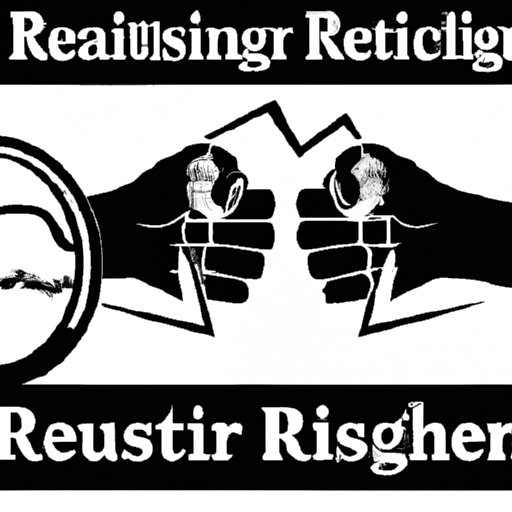What’s The Best Way To Handle Opposition Research?
Opposition research is a crucial aspect of any competitive environment, whether it be in politics, business, or even personal relationships. It involves gathering information about your opponents in order to anticipate their actions and develop strategies to counter them effectively. In this article, we will discuss the best ways to handle opposition research and provide you with tips on how to gather, analyze, and use this information to your advantage.
Understanding Opposition Research
Understanding the importance of opposition research is the first step to handling it effectively. By knowing your opponent’s strengths, weaknesses, and strategies, you can plan your moves accordingly and stay ahead of the game.
When you conduct opposition research, you are essentially gathering critical information about your opponent to gain a competitive advantage. This can include details about their background, past actions, potential vulnerabilities, and future plans.
Key Benefits of Opposition Research
Opposition research provides you with a competitive edge by:
- Anticipating Actions: By knowing your opponent’s next move, you can prepare a counter-strategy in advance.
- Identifying Weaknesses: Understanding your opponent’s vulnerabilities allows you to exploit them effectively.
- Building Credibility: Having solid research to back up your claims and decisions enhances your credibility and strengthens your position.
- Staying Ahead: Keeping track of your opponent’s actions and strategies helps you stay one step ahead at all times.
Gathering Information
One of the critical aspects of handling opposition research is to gather accurate and relevant information.
Sources of Information
There are several sources you can use to gather information about your opponents:
| Source | Description |
|---|---|
| Public Records | Official documents, such as court records, property records, and financial disclosures. |
| Social Media | Information shared by your opponents on platforms like Facebook, Twitter, and LinkedIn. |
| News Articles | Reports and articles about your opponents published in newspapers, magazines, or online platforms. |
| Interactions | Conversations, interviews, and public speeches made by your opponents in various settings. |
| Third-Party Reports | Research conducted by independent agencies, think tanks, or investigative journalists. |
Tips for Effective Information Gathering
Here are some tips to help you gather information effectively:
- Stay Objective: Keep your personal biases aside and focus on collecting facts and evidence.
- Verify Sources: Double-check the accuracy and credibility of your sources before using the information.
- Cross-reference Information: Compare data from multiple sources to ensure its accuracy and reliability.
- Be Ethical: Respect privacy laws and ethical standards while gathering information.

Analyzing Data
Once you have gathered the necessary information about your opponent, the next step is to analyze and make sense of the data.
Key Aspects of Data Analysis
Analyzing data involves the following key aspects:
- Identifying Patterns: Look for recurring themes, behaviors, or strategies in your opponent’s actions.
- Assessing Impact: Evaluate the potential impact of your opponent’s actions on your goals and objectives.
- Connecting Dots: Draw connections between different pieces of information to understand the bigger picture.
- Predicting Outcomes: Use the data to predict your opponent’s future actions and develop preemptive strategies.
Tools for Data Analysis
There are several tools you can use to analyze the data effectively:
| Tool | Description |
|---|---|
| SWOT Analysis | An analysis technique that evaluates your opponent’s strengths, weaknesses, opportunities, and threats. |
| Competitive Intelligence | Tools that help you track and analyze your opponent’s strategies and market position. |
| Data Visualization | Software that helps you create visual representations of your opponent’s data for better understanding. |
| Statistical Models | Models that use statistical techniques to predict your opponent’s future actions based on past data. |
Using Research Findings
Once you have gathered and analyzed the data about your opponent, it’s time to put your research findings into action.
Strategic Planning
Using your research findings, you can develop strategic plans to outmaneuver your opponent effectively.
- Create Counter-Strategies: Develop tactics to counter your opponent’s moves and exploit their weaknesses.
- Set Objectives: Define clear objectives based on your research findings and align your actions accordingly.
- Adapt to Changes: Be flexible and ready to adjust your strategies based on new information or developments.
Communication Strategies
Effective communication is key to leveraging your research findings and influencing key stakeholders.
- Craft Compelling Messages: Use your research findings to create persuasive arguments and communicate your position effectively.
- Engage with Stakeholders: Share your research findings with key stakeholders to build support and alignment.
- Manage Public Perception: Influence public opinion by using your research findings to shape the narrative in your favor.

Staying Updated
Opposition research is an ongoing process that requires you to stay updated with the latest information about your opponent.
Tips for Staying Updated
Here are some tips to help you stay ahead of the game:
- Monitor News Sources: Keep track of news articles, social media updates, and public statements made by your opponent regularly.
- Engage with Informants: Build relationships with informants or insiders who can provide you with valuable information.
- Attend Events: Participate in events, conferences, or public appearances organized by your opponent to gather firsthand information.
- Use Technology: Utilize advanced tools like data analytics, social listening platforms, and AI-powered software to gather real-time insights.
Benefits of Staying Updated
Staying updated with the latest information offers several benefits:
- Real-Time Insights: Access to current data allows you to make informed decisions quickly.
- Prevent Surprises: Stay ahead of any unexpected moves or actions taken by your opponent.
- Maintain Competitive Edge: Being well-informed gives you a competitive advantage over your opponent.
- Adapt to Changes: Stay flexible and adaptable to changing circumstances or new developments.
Ethical Considerations
While opposition research is a critical component of competitive environments, it’s essential to handle it ethically and responsibly.
Ethical Guidelines
Adhering to ethical guidelines ensures that you conduct opposition research in a fair and transparent manner:
- Respect Privacy: Avoid using illegal or unethical means to gather information about your opponent.
- Disclose Sources: Clearly cite the sources of your information and give credit where it’s due.
- Protect Confidentiality: Safeguard sensitive information and avoid leaking or misusing it for personal gain.
- Follow Laws: Comply with privacy laws, data protection regulations, and industry standards while conducting research.
Reputation Management
Maintaining your reputation is crucial when handling opposition research ethically:
- Avoid Malicious Intent: Conduct research with the intent to gain insight and strategic advantage, not to harm your opponent personally.
- Be Transparent: Share your research findings openly and honestly with stakeholders, avoiding the use of misleading or false information.
- Handle Information Responsibly: Safeguard sensitive data and ensure that it’s used for legitimate purposes only.
- Seek Legal Advice: Consult legal experts or compliance officers to ensure your research practices are in line with legal and ethical standards.

Conclusion
In conclusion, opposition research is a valuable tool that can help you navigate competitive environments effectively. By understanding the importance of opposition research, gathering accurate information, analyzing data, and using research findings strategically, you can stay ahead of your opponents and achieve your goals successfully. Remember to stay updated, adhere to ethical guidelines, and handle opposition research responsibly to maintain your reputation and credibility in the long run. Good luck in your endeavors!








